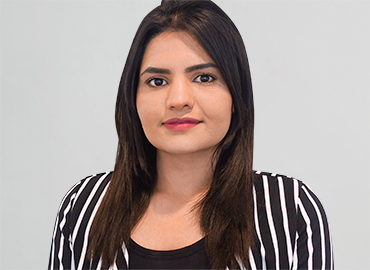This Website uses cookies to improve your visit on our website. More Info
Study Finder
- MBS QUICK FACTS:
- State recognized since 1999
- September
- 18 or 24 Months
- English
- Book a consultation appointment
Before we compare the degree programs in detail, let's take a quick look at the individual programs. Each of the three universities—Munich Business School, Fresenius University of Applied Sciences, and Gisma University of Applied Sciences—offers master's degree programs with specific focuses and orientations in the field of entrepreneurship.
The Master's program in Innovation and Entrepreneurship at MBS is aimed at founders and innovators who want to learn in a practical way how to develop new business models and build companies. The program places great emphasis on internationality, personal development, and close ties to Munich's start-up scene.
The M.Sc. in Business Administration with Entrepreneurship as an elective subject at HS Fresenius offers a solid foundation in business administration combined with entrepreneurial content such as business planning, innovation, and start-ups. The elective structure allows students to set individual priorities within a classic Business Studies master's program.
The MSc Creative Entrepreneurship at GISMA is specifically designed for creative minds who want to implement entrepreneurial ideas in areas such as design, media, or art. The program combines creativity with business knowledge and promotes the development of personal projects in the international environment of Potsdam and Berlin. The degree program is currently still in the accreditation phase (as of May 5, 2025).
The following special features play a role in one or more of the Master's degree programs in Entrepreneurship at Munich Business School, Fresenius University of Applied Sciences, and Gisma University of Applied Sciences. They provide insight into the content, structure, and special features of the programs and illustrate how these degree programs promote practical learning, individual design options, and international experience.
Below, we briefly explain what the concepts and terms used in the Master's program in Entrepreneurship mean.
Case studies are practical analyses of real or fictional business situations in which you are required to solve specific problems and make strategic decisions – ideal for applying theory directly.
Elective courses give you the opportunity to choose the modules that match your interests and career goals, allowing you to tailor your studies to your individual needs. In many degree programs, you can choose more than one elective course.
A degree program with an international focus prepares you for the challenges and opportunities of global markets through intercultural content, languages and often international experiences such as semesters abroad.
A semester abroad allows you to study at a partner university in a foreign country, gain international experience and improve your language and intercultural skills.
An internship is a practical experience in a company where you apply your theoretical knowledge, gain professional insights and make valuable contacts.
A double/dual degree enables you to earn two master's degrees in just one period of study, often by spending an additional semester at a partner university abroad. This broadens both your professional qualifications and your international career opportunities.
A mentoring program connects you with experienced professionals or alumni who are ready to provide valuable advice, career tips, and personal support.
Project work consists of practical tasks in which you work alone or in a team over a longer period of time on a specific topic or problem and present your findings at the end.
A start-up project is usually a project that accompanies your studies, in which you develop your own business idea, draw up a business plan and, in some cases, even take the first steps towards implementation – often accompanied by coaching or pitch situations.
The Hybrid Learning Scheme is a learning model that combines face-to-face teaching with digital teaching formats, allowing you to switch flexibly between on-site participation and online study.
The accreditation of each university is an important indicator of the quality and recognition of its degree programs. Institutions such as the Ministry of Education, FIBAA, the Science Council, and renowned international accreditation organizations such as AMBA, AACSB, and EQUIS examine the academic excellence, practical orientation, and international standards of universities. Below, we take a look at the most important accreditations for Master's degree programs in Entrepreneurship.
| Munich Business School | Hochschule Fresenius | Gisma University of Applied Science | |
|---|---|---|---|
| German Ministry of Education | ✔️ | ✔️ | ✔️ |
| FIBAA | ✔️ | ❌ | ✔️ |
| German Council of Science and Humanities | ✔️ | ✔️ | ❌ |
| AMBA | ❌ | ❌ | ✔️ |
| AACSB | ✔️ | ❌ | ❌ |
| EQUIS | ❌ | ❌ | ❌ |
Internationality plays a different but important role at each of the three universities:

At the Munich Business School, internationality is a central component of the concept: Studies are conducted in English, there are numerous international guest lecturers, partner universities, and a mandatory semester abroad – ideal for students with global ambitions.
The Hochschule Fresenius is fundamentally open to international students, but places less emphasis on this than MBS. There are exchange opportunities and international collaborations, but everyday life in the Business Studies master's program with entrepreneurship as an elective is more German-speaking and more locally anchored.
The Gisma University of Applied Sciences positions itself internationally – with English-language programs, a multicultural campus in Potsdam, and a relatively large number of international students. The study environment is global, which is particularly exciting for creative start-ups with an international focus.
In the table below, we have summarized the key facts about the various Master's programs in Entrepreneurship offered by the three universities.
| Munich Business School | Hochschule Fresenius | Gisma University of Applied Science | |
|---|---|---|---|
| Degree program | Master Innovation and Entrepreneurship | Master Business Administration with Entrepreneurship Elective | Master Creative Entrepreneurship |
| Final degree | Master of Arts | Master of Science | Master of Science |
| Duration | 3 Semesters | 4 Semesters | 2 - 4 Semesters |
| Study program language | English | German | English |
| Start of studies | Winter semester | Winter & summer semester (depending on location) | Winter & summer semester |
| Location | Munich | Munich, Cologne, Hamburg | Potsdam |
| Format | Full-time study | Full-time study | Full-time study |
| Numerus Clausus | No Numerus Clausus | Not specified | Not specified |
| Recognition | State-recognized & accredited | State-recognized & accredited | State-recognized School, Study program not yet accredited (as of May 5, 2025) |
| Study requirements | Bachelor's degree in a related subject or, alternatively, a pre-master's degree is possible; under certain circumstances, admission is also possible without a bachelor's degree; proof of English language proficiency through a test or a previous degree obtained in English | First degree in a related field: with certain credit points or passing an entrance exam, English language skills at level B2 or higher | BA degree in a related subject, or pre-master's degree possible, English language skills at B2 level or higher |
| Scholarship opportunities? | Yes, up to €4,000 in funding | No | No |
| Thesis | Master's thesis in German or English | Master's thesis | Master's thesis |
| Special features | Dual degree possible, 2 elective courses, international focus, business project, semester abroad, internship and/or start-up project optional, mentoring program | Project work, case studies, and collaboration with our industry partners, elective courses in areas such as entrepreneurship and language courses | Hybrid learning scheme possible (partly on-site, partly e-learning), possible stay abroad, internship or practical project during longer studies, elective subject possible |
Do you want to find out what the difference is between a Master of Arts and a Master of Science?
For more information on this topic, please visit our dedicated page.
Difference between a M.A. and a M.Sc.The location that is best suited to your Master in Entrepreneurship depends on your personal preferences and goals. The choice should be based on your budget, industry, and lifestyle. Here is a brief overview of the three locations Munich (MBS), Cologne (HSF), and Potsdam (GISMA) for a Master in Entrepreneurship:
| Munich | Cologne | Potsdam | |
|---|---|---|---|
| Economy | 10/10 | 7/10 | 2/10 |
| Internationality | 9/10 | 8/10 | 2/10 |
| Networking Opportunities | 9/10 | 6/10 | 1/10 |
| Infrastructure | 9/10 | 9/10 | 6/10 |
| Quality of Life | 10/10 | 7/10 | 8/10 |
| Cost of Living | 2/10 | 5/10 | 6/10 |
| Student Life | 8/10 | 8/10 | 3/10 |
| Nature | 10/10 | 6/10 | 8/10 |
| Recreational Possibilities | 10/10 | 8/10 | 3/10 |
| Culture | 9/10 | 8/10 | 6/10 |
| 86/100 | 72/100 | 45/100 |
The career prospects after completing the Master's in Entrepreneurship program are promising, with some differences based on the respective program focuses and networks of the three different universities:

After completing the Master's in Innovation and Entrepreneurship, you will have a wide range of opportunities – from starting your own business to joining a start-up or working in the innovation departments of large companies. Thanks to the strong network and practical orientation, positions in business development or consulting are also realistic.
The M.Sc. in Business Studies with Entrepreneurship as an elective subject provides you with a broad business education. You can enter traditional areas of business or pursue your own projects – the entrepreneurial focus is a plus, but less pronounced than in specialized programs.
The M.Sc. Creative Entrepreneurship opens up a wide range of career opportunities in the creative sector, whether you want to start your own business in design, media, or culture, or pursue a career in innovative, project-based companies in the creative sector.
The experiences of alumni are a decisive factor when it comes to choosing the right Master's program in Entrepreneurship. Reviews on platforms such as StudyCheck give you authentic insights into the quality of the program, support, and career opportunities from the perspective of former students. Below, we compare the reviews of the three master's programs offered by Munich Business School, Hohschule Fresenius, and Gisma University of Applied Sciences to provide you with a solid basis for your decision.

These ratings come from the German rating portal StudyCHECK.de. The ratings are current as of May 5, 2025.
★★★★☆ 4,3
99% would recommend
★★★★☆ 4,5
100% would recommend
★★★☆☆ 3,8
90% would recommend
★★★☆☆ 3,7
100% would recommend
★★★★☆ 4,0
67% would recommend
Not available & no ratings!
Munich is one of Germany's leading start-up locations, particularly strong in tech, mobility, AI, and life sciences. Here you will find a dense network of investors, accelerators, established companies, and innovative start-ups. The proximity to global corporations such as BMW, Siemens, and Google promotes cooperation and access to resources.
Challenges:
Living in Munich is expensive—rent and living costs are among the highest in Germany. In addition, the environment can be quite competitive.
Cologne is attractive for digital business models, media, and e-commerce. The start-up scene is growing steadily, and the city has an open, creative vibe. Networking events and local support offer good opportunities to get started.
Challenges
Compared to Munich or Berlin, the start-up ecosystem is still smaller and less international. Access to large venture capitalists is also more limited.
Potsdam itself is quieter, but its proximity to Berlin gives you direct access to one of Germany's best-known start-up ecosystems. Berlin offers countless events, co-working spaces, start-up centers, and investors. It's ideal for digital, creative, and social entrepreneurial start-up ideas.
Challenges:
Potsdam is small and tranquil – if you want to get the most out of start-up life, you'll need to commute to Berlin regularly. The environment there is dynamic, but also very competitive.
An entrepreneurship study program provides you with the knowledge and skills you need to develop your own business ideas, start a company, or engage in entrepreneurial activities in start-ups and innovative projects—with a focus on creativity, strategy, financing, and management.
With a degree in entrepreneurship, you can start your own business, help build start-ups, or work in innovative areas of larger companies where entrepreneurial thinking is in demand.
A master's degree in entrepreneurship usually takes between three and four semesters, i.e. around one and a half to two years.
An entrepreneurship study program provides you with the necessary know-how to strategically develop and implement business ideas and manage them successfully in the long term.
Entrepreneurship and innovation management deals with how new business ideas arise, how they can be successfully implemented, and how innovative processes can be managed within companies.

